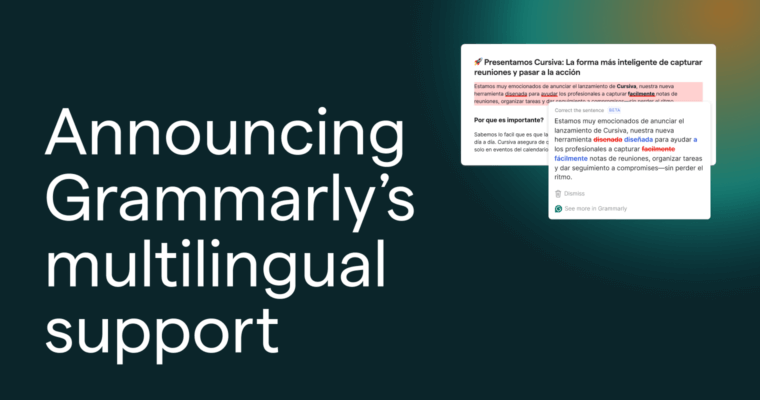Grammarly Blog: Your Ultimate Writing Resource
![The Vanguard Awards]() CompanySuperhuman Announces Winners of its Inaugural Grammarly Vanguard Awards
CompanySuperhuman Announces Winners of its Inaugural Grammarly Vanguard Awards![How to Use the SCAMPER Method]() Writing ProcessHow to Use the SCAMPER Method to Improve Your Writing
Writing ProcessHow to Use the SCAMPER Method to Improve Your Writing![How to Use Mind Mapping]() Writing ProcessHow to Use Mind Mapping: Benefits, Techniques, and Examples
Writing ProcessHow to Use Mind Mapping: Benefits, Techniques, and Examples![]() CompanyMeet the First Wave of Superhuman Partner Agents
CompanyMeet the First Wave of Superhuman Partner Agents![]() CompanyArizona State University and Grammarly Launch First Higher Education Use of Superhuman Go
CompanyArizona State University and Grammarly Launch First Higher Education Use of Superhuman Go![]() InstitutionsThe Next Evolution of Grammarly and a Bigger Vision for AI in Education
InstitutionsThe Next Evolution of Grammarly and a Bigger Vision for AI in Education![]() ProductGrammarly Authorship Named to Fast Company’s Next Big Things in Tech 2025
ProductGrammarly Authorship Named to Fast Company’s Next Big Things in Tech 2025![]() WritingGrammarly Authorship is Now Available in Canvas LMS
WritingGrammarly Authorship is Now Available in Canvas LMS![]() CompanyGrammarly Expands Beyond English With AI Writing Assistance in 5 New Languages
CompanyGrammarly Expands Beyond English With AI Writing Assistance in 5 New Languages








